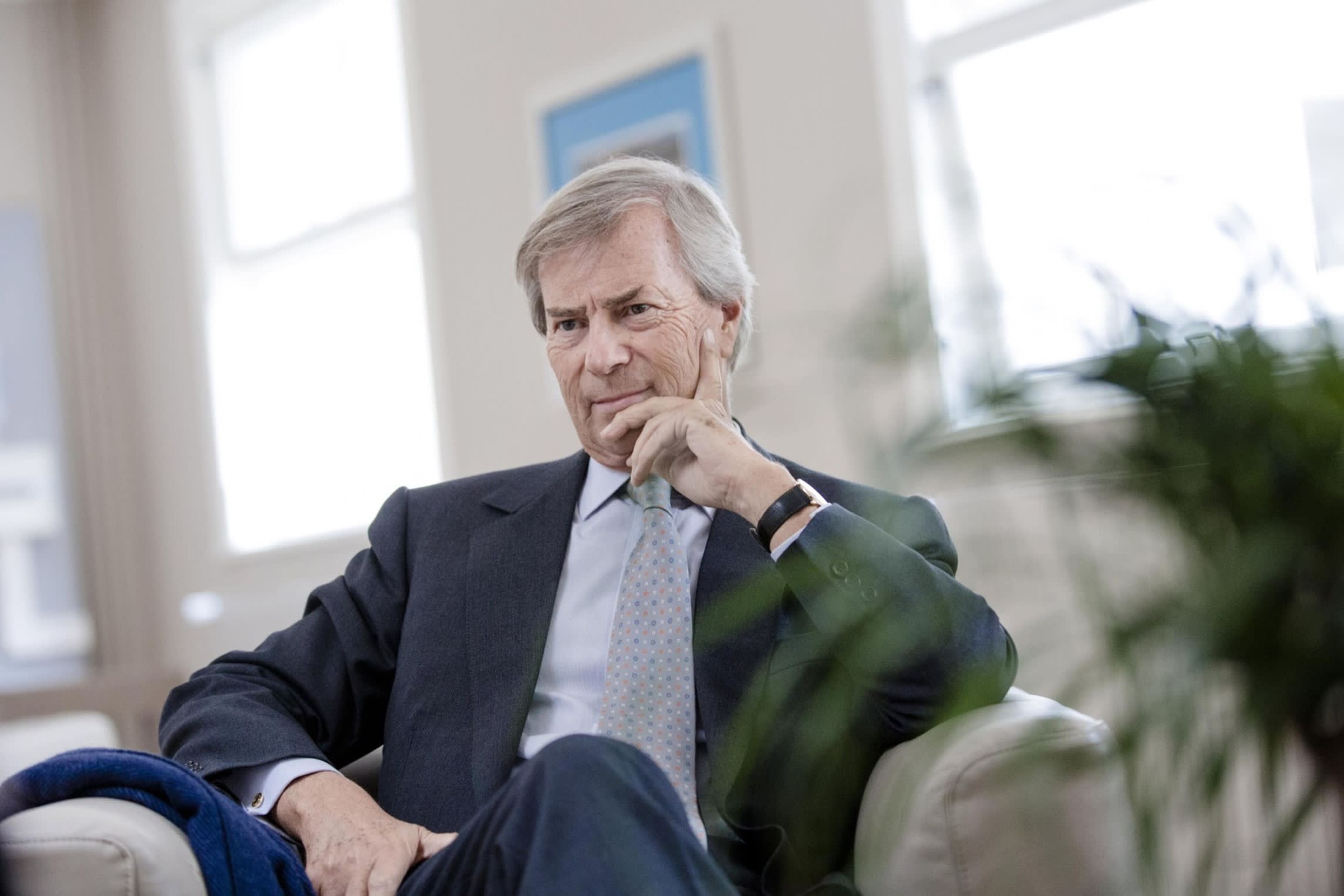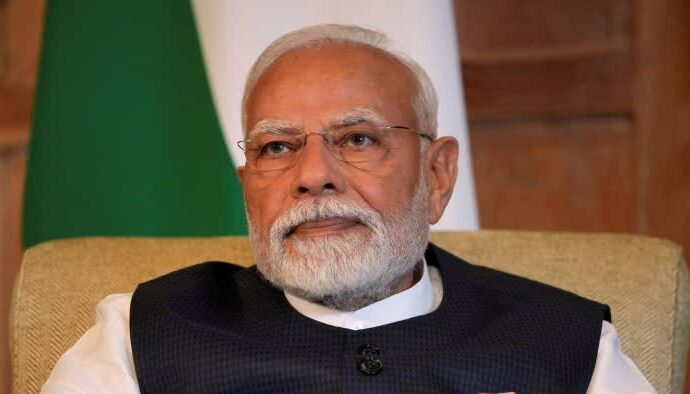Two things to start: WeWork has filed for bankruptcy, a humbling fall for the once high-flying co-working start-up co-founded by Adam Neumann and backed by billions of dollars from Japan’s SoftBank.

And: Last week the FT broke the story on Hunterbrook, the new trading firm that plans to make money on stories unearthed by its own investigative reporting. We’ve gathered more intel on how the “news hedge fund” will work.
Welcome to Due Diligence, your briefing on dealmaking, private equity and corporate finance. This article is an on-site version of the newsletter. Sign up here to get the newsletter sent to your inbox every Tuesday to Friday. Get in touch with us anytime: Due.Diligence@ft.com
In today’s newsletter:
Dealmakers walk a geopolitical tightrope in Hong Kong
Vivendi hits back at Telecom Italia’s board
Consultancies curb new hire salaries
A powerful LP in a complicated world
In the top tier of global finance, pretty much everyone knows the Hong Kong Monetary Authority.
The territory’s de facto central bank and sovereign wealth fund is a huge limited partner for private equity groups, and an important client for investment banks. That’s because it has almost HK$4tn (£410bn) in its Exchange Fund.
It has used its considerable influence to gather the world’s most senior investment bankers, dealmakers and asset managers in Hong Kong, for a conference this week headlined “Living with Complexity”, DD’s Kaye Wiggins writes.
Not many other institutions could dream of getting David Solomon, James Gorman, Jane Fraser, Jonathan Gray, Marc Rowan, David Rubenstein and a host of other financiers under one roof. (JPMorgan Chase’s Jamie Dimon couldn’t make it because he’ll be in Paris with the bank’s International Council, a group chaired by former UK prime minister Tony Blair.)
For some, the event will require careful manoeuvring. Executives seen to talk up their firm’s China business could find themselves in the crosshairs of politicians back home. But they’ll also be cautious to avoid comments that could be construed as talking China down.
They’ll also be keen to avoid one-to-one photographs with John Lee, the territory’s chief executive who is due to speak at the event. He’s under US sanctions for “being involved in coercing, arresting, detaining or imprisoning individuals” under a draconian national security law that Beijing imposed on Hong Kong after pro-democracy protests in 2019.
All of this will be taking place against a difficult business backdrop. As US-China tensions have risen, investors’ attitudes to China, to which Hong Kong has long been a gateway, are changing fast.
“When we used to go [to the US], everyone wanted to talk about China,” said one senior Hong Kong-based executive who advises investment firms. Now, “it’s almost an uncomfortable topic — they try to change the subject”.
It’s telling that the world’s most powerful bankers are willing to attend despite all of this. There are short-term commercial reasons, of course. They want good relationships with the HKMA and the other asset managers in the room.
But many of the attendees also manage important businesses in China, requiring them to build ties with Hong Kong and Beijing as well as the west. When the HKMA invites them to be in the room, they have decided it is best to say yes.
How Telecom Italia’s KKR deal could spill into the courts
Posed with the choice of ticking off one of Europe’s fiercest corporate raiders or paying down its debts, Telecom Italia (TIM) has shown its priorities rest with the latter.
On Sunday, the Italian group’s board pulled a bold move in the high-stakes battle for its prized landline network, opting to accept a €22bn offer for the unit from KKR without putting it to a shareholder vote.
That essentially comes as a middle finger to Vivendi, the French media group backed by billionaire Vincent Bolloré and TIM’s largest shareholder, which has long argued that the private equity group’s offer significantly undervalues the network.

The deal comes two years after KKR’s first €33bn takeover offer which envisioned taking the company private and was previously rejected by Vivendi.
The latest iteration will give the Italian government — which gave the green light to the deal last month — a 20 per cent stake in the company alongside KKR as well as a say over strategic decisions.
It will also potentially boost TIM’s valuation, which has plummeted in recent years, after axing its debt from €26bn to €14bn, analysts say.
Vivendi, which has funnelled more than €4bn in TIM over the past eight years and has had to write down its investment twice, has not taken kindly to being shut out of the decision-making process. It plans to “use any legal means at its disposal to challenge this decision”, the group said.
TIM’s board says it has acted within its rights, arguing that the sale and leaseback of an asset, even a big one, doesn’t fundamentally change the company.
That could now be left up to a court of law to decide.
Consultants feel the post-talent war ‘hangover’
It was only a year ago that booming demand for advisory services and the tight labour market led the consulting giants McKinsey, Bain and Boston Consulting Group to boost pay for new hires by the largest amount in decades.
But customers have been cutting back and putting pressure on prices this year, forcing the prestigious firms to freeze US starting salaries, the FT’s Stephen Foley reports.
“It is the hangover after the party,” said Fiona Czerniawska, chief executive of Source Global Research, as firms look to shore up profits by putting a cap on salary inflation.
That’s not to say new recruits are working for peanuts. McKinsey pays those with MBAs $192,000, according to career coaching group Management Consulted, and $112,000 for recruits with undergraduate degrees. Bain offers the same, and BCG pays $2,000 less.
And that’s before signing and performance bonuses, which can push year-one pay as high as $267,000 or more for MBAs and $140,000 or more for undergraduates.
But the competition for those roles is becoming increasingly fierce.
“You’ve got fewer open spots this year and more people applying for those spots because of the flight to safety from investment banking and tech,” said Management Consulted’s chief operating officer Namaan Mian.
Pour one out for the postgrads who dreamt of “the McKinsey mystique” and might now be forced to make six figures at a tier-two firm instead.
Job moves
Veteran British media executive and former Financial Times M&A reporter Will Lewis has been named the new publisher and chief executive of The Washington Post.
Disney has named PepsiCo’s vice-chair and chief financial officer Hugh Johnston as CFO. He replaces Kevin Lansberry, who took over from longtime finance chief Christine McCarthy on an interim basis in June.
Bumble has named Slack chief executive Lidiane Jones as CEO, succeeding the Blackstone-backed dating app’s founder Whitney Wolfe Herd who will become executive chair.
Dish Network chief executive Erik Carlson is to step down.
Santander has agreed to hire the former co-head of Credit Suisse’s investment bank, David Miller, who becomes the latest executive to join from the collapsed Swiss lender.
General Atlantic has appointed Oakley Capital’s Sascha Günther as managing director and head of Germany, Austria and Switzerland starting January 1, based in Munich. He succeeds Jörn Nikolay, who will move into an advisory director role.
Index Ventures has appointed former Airbnb executive Vlad Loktev as a partner in its San Francisco office.
Clayton, Dubilier & Rice has named Detlef Trefzger, the former chief of logistics company Kuehne+Nagel Group, as an operating adviser.
Smart reads
Tuck takes the reins Heads have been rolling at The Wall Street Journal ever since Emma Tucker took the helm. Rumours of her plans for the paper have been flying accordingly, New York Magazine writes.
The ‘Godfather’ Before he was FBI director, James Comey was the top lawyer at Bridgewater Associates — a role that would prepare him for the political arena, Vanity Fair reports.
‘Hipster’ antitrust FTC chair Lina Khan’s antitrust revolution is winning over the next generation of lawyers, much to her critics’ annoyance, Politico reports.
News round-up
Bored Ape crypto fans report ‘eye burn’ after Hong Kong party (FT)
Ken Griffin warns against hedge fund clampdown (FT)
Greensill misled German regulator on insurance deal, IAG claims (FT)
Klarna studies ‘eventual IPO’ after first profit in 4 years (FT)
Revolut in talks over new Canary Wharf headquarters (FT)
VistaJet owner Thomas Flohr loses bid to strike out historic legal claim (FT)
David Einhorn urges Vitesco to reject offer from rival German auto group Schaeffler (FT)
PwC to cut up to 600 UK jobs as attrition rate plunges (FT)
Private equity wrestles with higher interest rates (FT News Briefing podcast)
Hipgnosis/SMIT: volatile valuations leave trusts livin’ on a prayer (Lex)
Due Diligence is written by Arash Massoudi, Ivan Levingston, William Louch and Robert Smith in London, James Fontanella-Khan, Francesca Friday, Ortenca Aliaj, Sujeet Indap, Eric Platt, Mark Vandevelde and Antoine Gara in New York, Kaye Wiggins in Hong Kong, George Hammond and Tabby Kinder in San Francisco, and Javier Espinoza in Brussels. Please send feedback to due.diligence@ft.com
